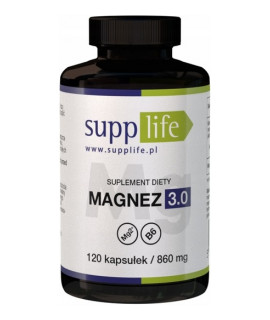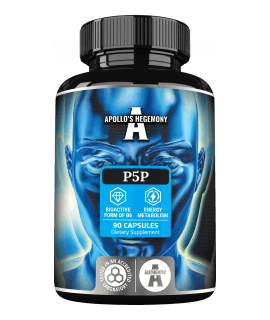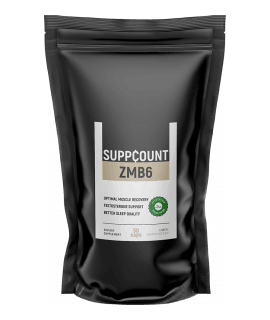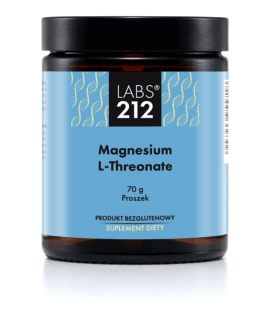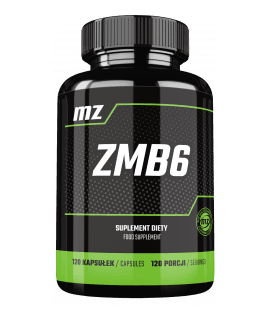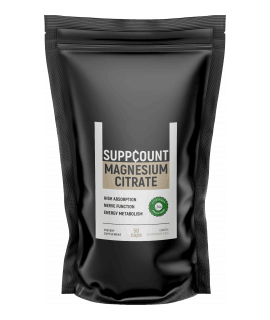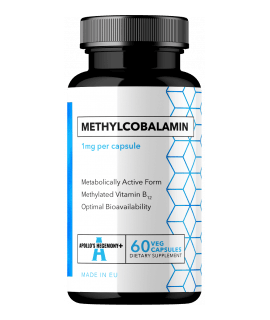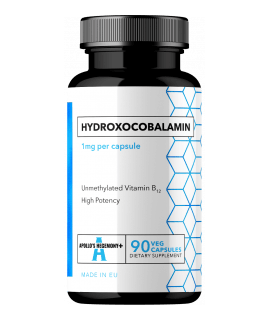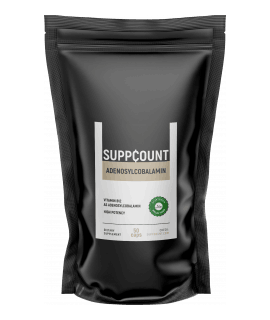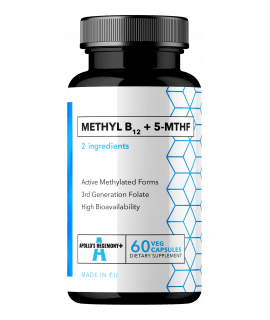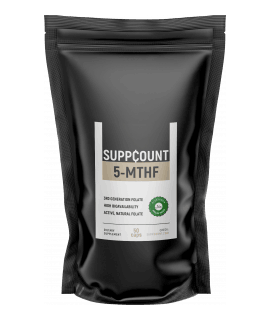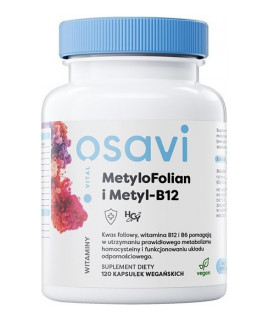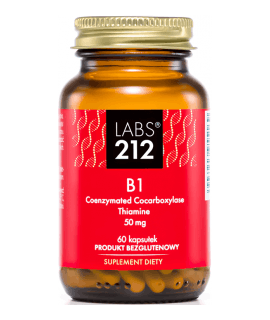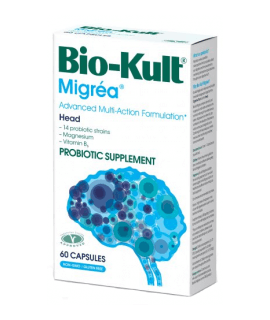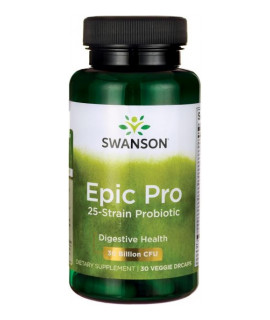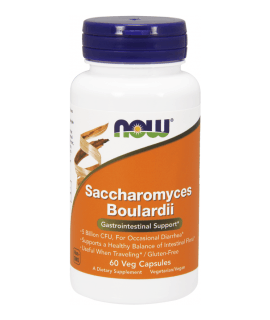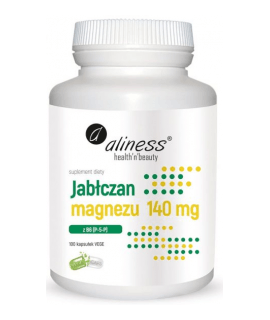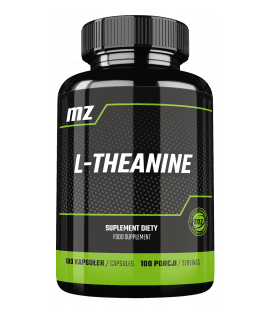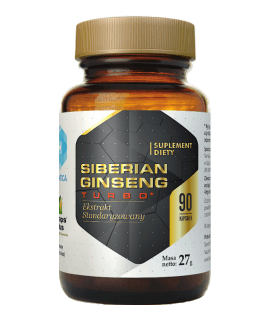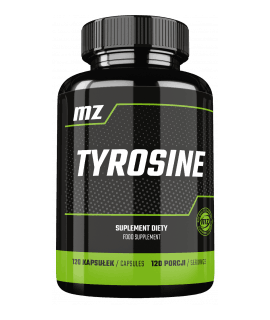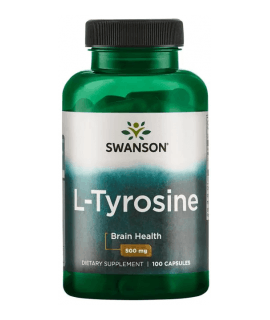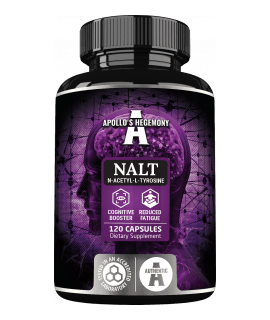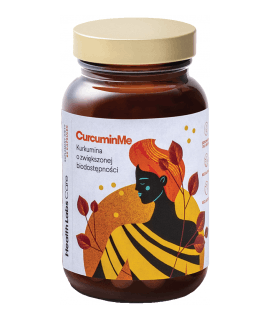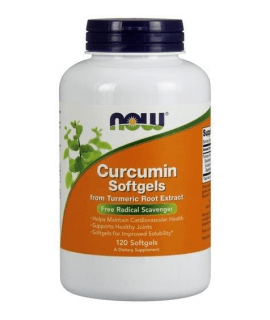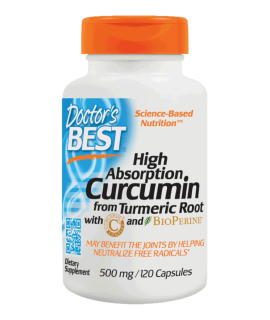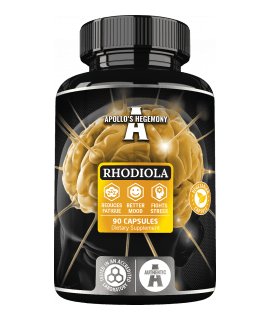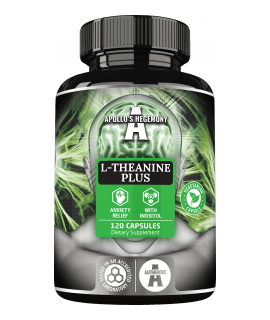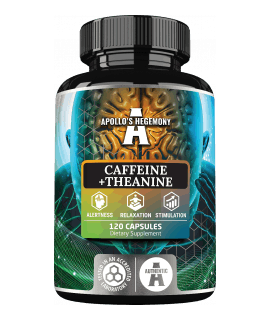An important element of antidepressant therapy may be appropriate supplementation, because we are not always able to supplement the necessary vitamins, minerals, building compounds, or those with the nature of cofactors of certain reactions, through the diet. The more so because depression is associated with decreased appetite. Choosing the right supplements can be very helpful
- B6 - in the form of pyridoxal phosphate (P5P) for depression
- Magnesium for depression
- B12 - cobalamin for depression
- B9 - MTHF and folic acid for depression.
- B1 - thiamine (thiamin triphosphate) for depression.
- Vitamin D3 for depression
- Probiotics for depression
- SAMe - S-adenosylmethionine for depression
- 5-HTP/5-hydroxytryptophan for depression
- N-Acetyl Tyrosine for depression
- Curcumin for depression
- Rhodiola Rosea for depression
- L-theanine for depression
B6 - in the form of pyridoxal phosphate (P5P) for depression
Necessary during the synthesis of serotonin, noradrenaline, dopamine (decarboxylates L-dopa to dopamine), stimulates the formation of GABA-neurotransmitter inhibitory, responsible for calmness, calmness and good sleep. Vitamin B6 significantly affects the functioning of the entire nervous system. There are different forms of Vitamin B6, but pyridoxal phosphate (P-5-P) seems to be the best one in effectiveness and bioavailability. Remember that proper level of Vitamin B6 in organism is important in fight with depression!
READ MORE --->P-5-P - Highly bioavailable vitamin B6 Form<---
Magnesium for depression
Determines the correct course of many biochemical and metabolic reactions, supports the nervous system, affects the growth of GABA, serotonin and dopamine. And you have to be aware that those are factors, which importance is enormous in depressive period. Magnesium taurate or magnesium forms are especially recommended in the context of mental health. But there are many others forms of magnesium, and those are discussed in the artcile below. Be sure to check it to know more about forms of magnesium and magnesium alone!
READ MORE --->Which magnesium should you choose?<---
B12 - cobalamin for depression
Essential for proper brain function (from cell myelination, to their communication and impact on cognitive abilities) alongside vitamin B9. Interesting facts that effects of deficencies of Vitamin B9 and B12 are synergistic, so it is wiseful to supplement them both together to be sure of theirs proper level inside our organism. Deficits correlated with depression and other mental and neurodegenerative diseases. The best form (the most bioavailable) is methyl-, adenosine-, hydroxocobalamin, and not cyanocobalamin as in many supplements. Be sure to check form of vitamin in formulations that you are buying.
READ MORE --->Different faces of Vitamin B12<---
B9 - MTHF and folic acid for depression.
Essential for proper methylation processes, which affects the production of neurotransmitters and their utilization. It also affects the level of BH4 - which is important in the synthesis of neurotransmitters and affects cognitive functions. Also, it should be supplemented alongside Vitamin B12, because - as we have mentioned before - theirs deficencies actions are overlaping, and intensifies each other.
READ MORE --->Folate, Folinic Acid and 5-MTHF<---
B1 - thiamine (thiamin triphosphate) for depression.
Participates in the synthesis of neurotransmitters in the adrenergic and serotoninergic systems, conditioning normal nerve signaling. In addition, thiamine is indispensable during energy transformation, it is also an element providing adequate delivery of 'fuel' for the brain. Involved in the formation of myelin sheaths and the appropriate neurotransmission between neurons. It protects the brain against neurodegenerative diseases, but it is also used to treat them. It stabilizes the mood and improves cognitive functions (increases the level of acetylcholine).
READ MORE --->Sulbutiamine - vitamin B1 derivative<---
Vitamin D3 for depression
Is essential for the production of serotonin during the transformation from tryptophan, its deficiency correlates with the occurrence of depression, supports neurogenesis and proper communication between neurons. By regulating calcium homeostasis and regulating the synthesis of neurotropins, it has neuroprotective effects. Its deficiencies are common in European region, because of a low amount of sunny days throughout the year. So, it is wise to consider supplementation of Vitamin D3 especially at the winter and autumn/
READ MORE --->The benefits of vitamin D3 supplementation<---
Probiotics for depression
Appropriately colonized microbes and good intestinal condition are one of the most important elements of mental health. People with depressive disorder are characterized by an abnormal microbiome, and intestinal diseases such as Crohn's disease or even IBS correlate with concurrent depressed mood, anxiety disorders and depression. In the intestine, tryptophan is produced, which may be a substrate for serotonin in the brain (because the one produced in the intestine most likely does not enter the brain). In addition, a number of B vitamins are equally important to the psyche. Intestinal dysbiosis and inflammation within the intestine causes the passage of proinflammatory cytokines or neuroendocrine signals through the intestinal nervous system (ENS) up to the CNS. Probiotics may have anti-inflammatory effects, and through communication through the intestinal axis, affect the level of proinflammatory cytokines at the level of the brain. It has been shown that supplementation with such probiotics as Lactobacillus helveticus, Bifidobacterium longum or Bifidobacteria infantis is helpful in depression.
READ MORE --->How to choose the best probiotics?<---
SAMe - S-adenosylmethionine for depression
Is a donor of methyl groups, which means that it is extremely important in the proper course of methylation processes, and these in turn affect the formation of neurotransmitters and general mental health. SAMe is considered as one of the most important non-drug substances used for depression therapy, even if actions related to methylation doesn't show that at the first glance.
READ MORE --->SAMe supplement - a natural mean to fight with depression<---
5-HTP/5-hydroxytryptophan for depression
A precursor of serotonin and melatonin. In contrast to tryptophan, the brain's blood can freely cross the barrier due to its size and lack of competition with other amino acids. This makes the adoption of 5HTP effective in the synthesis of serotonin at the level of the brain. 5HTP does not produce toxic metabolites of tryptophan (e.g. kynurenic acid, excess of which is associated with depression). The increase in the level of GABA receptors and the amount of melatonin causes that 5htp may have a calming and regulating effect on circadian rhythms, including improvement of sleep quality.
READ MORE --->Synergy of supplements - L-Dopa, 5-HTP and EGCG<---
N-Acetyl Tyrosine for depression
Tyrosine is a precursor of dopamine, adrenaline and norepinephrine (but also thyroid hormones), thanks to the combination with the acetic acid molecule, it gains better bioavailability than l-tyrosine. Increases cognitive functions, can improve mood, increase the level of motivation. In the case of depression, we are not sure which neurotransmitter is too low (usually it always starts with serotonin), so supplementation should be consulted with a doctor.
READ MORE --->N-Acetyl-L-Tyrosine - how does it work and why is it used<---
Curcumin for depression
Increases levels of serotonin and dopamine (inter alia through the inhibitory effect on the MAO enzyme), and also has a strong anti-inflammatory effect (also at the level of the brain, thanks to the ability to pass the blood-brain barrier). Due to those factors it can be perfect support in natural treatment of depression. Also, curcumin has many forms of supplementing (typical capsules, teas etc.), so its supplementation can be very convenient!
READ MORE --->Curcumin - super spice<---
Rhodiola Rosea for depression
An adaptogenic plant with anxiolytic and antidepressant properties (compared to sertraline, it has a milder effect but has fewer side effects). Calms, increases resistance to stress. Due to being adaptogen it restores proper hormonal balance, lowering the cortisol level in the effect. Rhodiola Rosea also has strong antioxidative actions, which can be helpful in restoring proper nervous system state.
READ MORE --->Rhodiola Rosea - the top 10 most important health benefits<---
L-theanine for depression
An amino acid found abundantly in green tea, increases the level of neurotransmitters such as serotonin, dopamine and GABA, which makes it calming, relaxing, helps to fall asleep and keep the dream effective. What is interesting its L-theanine mechanism of action - it induces alpha-waves in the brain, which shows sedative effects. Get to the article below to know the other health benefits of L-theanine!
READ MORE --->10 Health benefits of L-Theanine<---
These supplements can not be taken without consulting a doctor!!!
The combination of antidepressants and supplements that increase serotonin levels on your own may lead to a serotonin syndrome that is life-threatening. In addition, long-term use of 5-HTP is associated with a reduction in the level of dopamine (and often this neurotransmitter too little during depression). Supplementation should also be carried out under the supervision of a good doctor.
In addition to diet and supplementation, very important elements of antidepressant therapy are psychotherapy, physical exercise, striving for the right amount and quality of sleep, being outside and exposure to the sun, nurturing good contacts with others, limiting all stressors (bad work, surroundings, excess activity physical, excess of electronics, in particular in the second half of the day, sources of chronic inflammation).
References:

